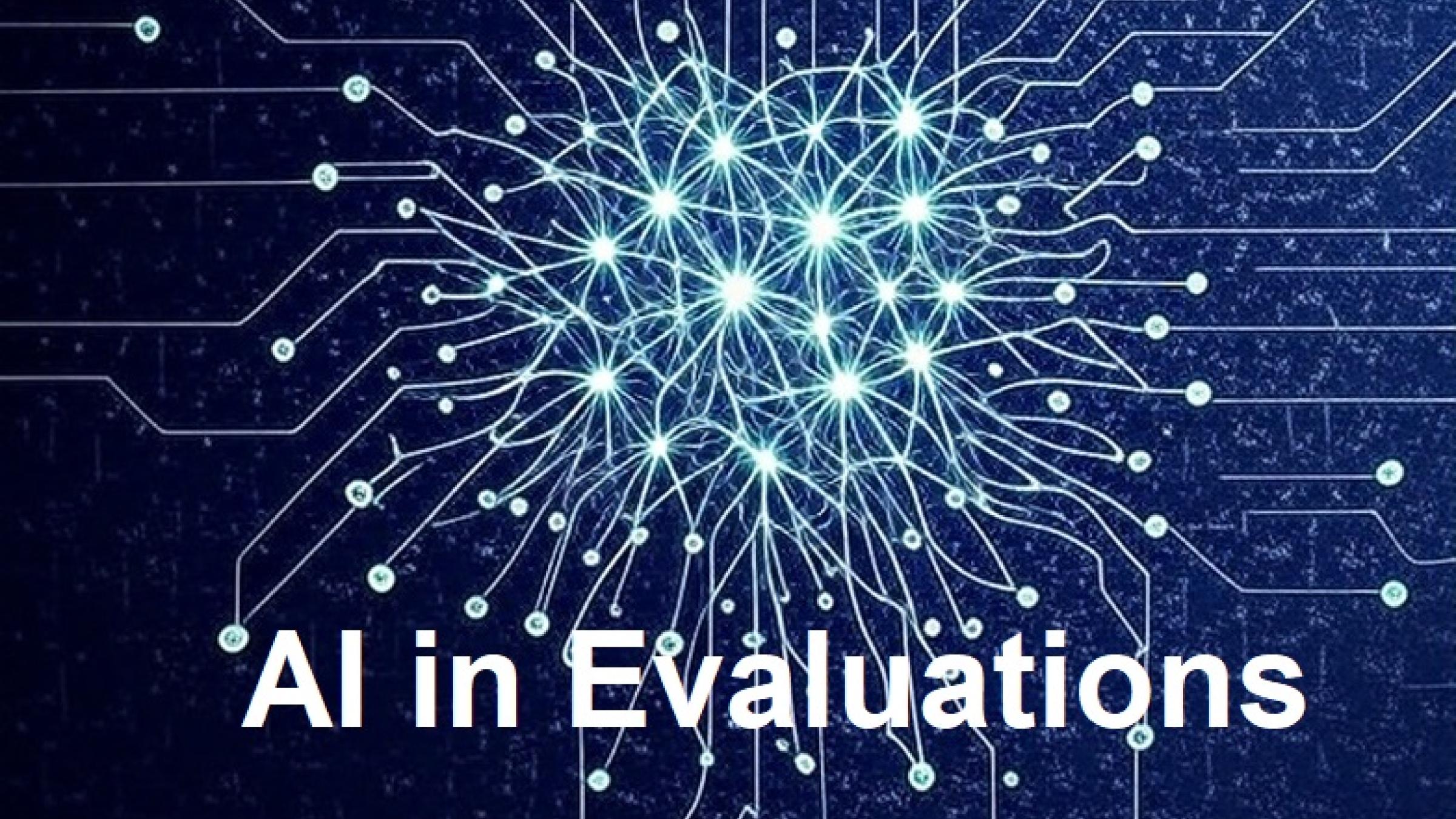The conversation about Artificial Intelligence (AI) in evaluation is well underway within EvalforEarth Community of Practice (CoP). Through a rich series of webinars, blogs, and discussions, from exploring the ethical implications to sharing practical skills, the EvalforEarth community has collectively laid the groundwork for understanding implications of AI in evaluations.
The conversation about Artificial Intelligence (AI) in evaluation is well underway within EvalforEarth Community of Practice (CoP). Through a rich series of webinars, blogs, and discussions, from exploring the ethical implications to sharing practical skills, the EvalforEarth community has collectively laid the groundwork for understanding implications of AI in evaluations. This blog post contributes to that trajectory by sharing the journey and lessons learned from IFAD’s Independent Office of Evaluation (IOE).
Ten years ago, few evaluators imagined they would be working alongside AI. Today, tools that once seemed futuristic are reshaping how we collect, analyze and validate evidence. At IFAD’s IOE, this transformation is already underway. Early work with AI has generated not only results, but also important lessons about what it takes to use these tools well and ethically.
Lesson 1: From Strategy to Practice: Exploring Where AI Adds Value
IOE IFAD's engagement with AI started as a strategic decision, a deliberate step to understand how new technologies could enhance evaluation quality, efficiency and learning. Building on experiences from sister UN agencies, international financial institutions (IFIs) and early internal pilots, IOE IFAD explored where AI could add value, not only across the evaluation cycle but also in key support functions.
Early experiments focused on well-defined, high-impact applications, such as structured interview analysis and classification of non-lending activities. These demonstrated how AI can accelerate evidence processing, broaden coverage and free up evaluator time for higher-value work.
Importantly, not every pilot worked as intended. Some attempts fell short due to limitations in model accuracy, complexity of prompts, or contextual nuance. Rather than setbacks, these experiences became critical learning moments that helped IOE IFAD clarify what AI can and cannot do, refine task design, and improve its internal learning processes.
Lesson 2: New Skills, New Roles: Building Internal Capacity for Responsible AI Use
If AI is to create real value in evaluation, it must be accompanied by a shift in skills, roles, and ways of working. IOE IFAD's early engagement with AI has shown that the most significant breakthroughs often come not from the tools themselves, but from the people learning how to use them effectively.
A central pillar of this journey has been building internal capacity through hands-on experimentation. Internal learning sessions, ‘prompt engineering’ clinics, and peer-to-peer exchanges have enabled evaluators to test ideas, refine prompts, validate outputs, and critically assess limitations. This learning-by-doing approach has boosted confidence, encouraged responsible use, and helped demystify AI across the team.
Crucially, this has also changed the evaluator’s role. Rather than acting only as data collectors or analysts, evaluators are increasingly positioned as critical reviewers, curators, and validators of AI-generated insights. This shift allows staff to focus more on strategic, analytical, and interpretive work, ensuring that human judgment remains central to evaluation practice.
This evolution directly addresses the provocative question posed in a prior CoP blog: 'Will Artificial Intelligence Replace Us as Evaluators?'. Our experience suggests a different future: AI will not replace evaluators, but evaluators who use AI will redefine their role towards higher-order critical thinking and validation.
Lesson 3: Trust by Design: Safeguards for AI in Evaluation
Responsible use has been at the heart of IOE IFAD’s AI journey from the outset. While experimentation drives learning, it must be anchored in safeguards that protect quality, transparency and accountability. IOE IFAD has taken practical, concrete steps to ensure this.
All AI-generated outputs are prompt-logged, allowing for traceability and peer review. Any use of AI in the preparation of reports or analytical products is disclosed transparently in annexes, ensuring that stakeholders understand where and how these tools were applied. Moreover, experiments and operational use take place in secure digital environments, protecting data confidentiality and maintaining evaluators’ control over sensitive information.
These measures are not just procedural—they help build confidence among evaluators, partners and stakeholders that AI is being used as a tool, not a decision-maker. They also reinforce IOE IFAD's broader commitment to ethics, quality assurance and learning, ensuring that innovation goes hand in hand with rigor.
The blog has been republished on IFAD’s Independent Office of Evaluation (IOE) website here.

